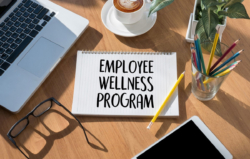Do you ever feel like you’re living your life in two separate worlds? You’re constantly switching between working and living and barely have time for anything else. Though we all love a good 9-5 officer hours, the problem is that our lives are no longer about work or play — they’re just about work, work, work!
It’s important to establish boundaries between your work life and personal life. Being “on” ALL the time can deplete your energy levels and take a toll on your health. People who don’t learn to separate their personal and professional lives from each other will burn out faster than a gallon of jet fuel. People that learn to integrate both parts of their life into one flowing process leads to better health and a happier existence.
Every day is a balancing act for employees who want to integrate their work, home, and personal lives. This article will walk you through some strategies for achieving work-life balance in your life.
Key Highlights
- What is work?
- What is Work-Life Balance?
- Why Work-Life Balance is important?
- How to Improve Work-Life Balance?
- Benefits of Work-Life Balance
- How to Create a Better Work-Life Balance as a Manager?
- How to balance Work-Life and Personal life as an Employee?
- Tips for working women to manage work-life balance?
- Conclusion
What is work?
It’s not just the hours spent on your desk or at the office. It’s also the planning and execution of tasks at home when you are on vacation.
What is Work-Life Balance?
A work-life balance is simply the ability to enjoy both your personal and professional lives at an optimal level. Work-life balance is a concept that employers and employees have to be comfortable with. In its simplest form, work-life balance includes taking time off for family, friends, and yourself. On the other hand, not everyone values this idea of balance, as they are more concerned with filling their boss’ expectations: spending long hours at work and working through their lunch breaks.
As we increase our understanding of what it means to have a work-life balance we must also learn how our preferences can change over time. While the concept is rooted in having balance within our personal lives, we must also consider how employers play a role in these unique preferences. When working with the majority of employees and their families, work-life balance is best when an employee’s particular needs are considered.
If you are an employer with any type of business model, you have to make a decision. You can work around the clock and ensure your employees’ extra-curricular activities are limited, or you can create schedules that provide more freedom for staff.
When talking about work-life balance, we must not forget to include the importance of flexibility. Allowing employees to take breaks is not only beneficial for them but also for those who depend on them. This includes coworkers, friends, and loved ones in addition to those working in the business itself.
Why Work-Life Balance is important?
Most of us know that work-life balance is a good thing, but how does it actually help us in our professional lives? Well, if you’re running out of steam at work because you’re so busy at home, or if your personal life starts to suffer because it’s continually on the back burner– Work-life balance is the solution. It will make your duties much easier and more manageable; not only that, but it will also make you happier and more productive.
If you’re able to be contacted with regards to work-related issues at almost any hour, this can be unsettling and unacceptable to some people in family or friends. It’s a good idea not to check your work email on your mobile phone after office hours, as this can keep you distracted during hours when you should be relaxing.
We’re all looking for a better work-life balance. Here are some tips and strategies to improve your odds of success!
How to Improve Work-Life Balance?
1. Learn to be more productive at work
Too many people are spending their time at work thinking about everything other than the work that needs to get done. This is why more people than ever suffer from burnout and stress-related medical conditions every day.
It’s time to stop focusing on being busy and start focusing on being productive. There are plenty of ways you can accomplish this, but the number one way is simple. Focus your energy on what really matters and make sure not to waste your time by thinking about all of your personal problems, obligations, and struggles.
2. Make a list of all the things you like to do
Think about what you enjoy doing in your free time and keep track of these activities as well as how much time you spend on each one (time spent is important because it shows that you’re not putting unimportant tasks ahead). Multiply your total time by five to get a number you can use as a guide for how much time you should spend on each activity.
3. Make a list of all the things you have to do in your life (work and personal)
Think about everything that is expected of you and make sure not to ignore anything important no matter how big or small it might seem. For example, if someone at work asks you to take on more responsibility, that’s an added chore.
4. Make some time-management choices
Now that you have a good idea of what your daily responsibilities are, you’ll want to make some time-management choices. Let’s start with the most important things, such as family and time with friends and loved ones. These are the top priorities in life! If they aren’t on your list now, add them.
5. Schedule frequent breaks
As you evaluate your schedule, make sure to schedule breaks in the day so you have time to relax and unwind. You’ll find that it’s not easy to concentrate on work when you are tired or hungry, so plan for those times when you can grab a bite to eat or take a short walk around the block.
6. Be open with your coworkers
At workplace, be open with your coworkers about the lines you want to draw between work life and private life. Ask your coworkers if they have problems scheduling meetings around your private responsibilities, or if they prefer you be available whenever they need you. It’s also good to let people know that you need to leave work at work and make yourself unavailable for the rest of the day.
Benefits of Work-Life Balance
The benefits of work-life balance are many. But in order to fully understand them, it helps if we break down the concept into two separate concepts: personal and professional responsibilities. Personal responsibilities refer to what you need to do on a regular basis in order to maintain your family or personal life – the things you do on a daily basis that are essential for your health, job or education. Professional responsibilities, on the other hand, refer to tasks that you need to complete at work – your responsibilities during the time you are physically present at work and working.
Achieving a good work-life balance is about striking a healthy balance between all these types of activities in order to be happier and more productive. Unfortunately, most of us don’t do this well because there is an inherent emotional attachment we have to our professional responsibilities. This is fine so long as we do everything else in our power to maintain all aspects of our lives.
Most of us have a tendency to pile on professional responsibilities because we think it will make our bosses or other colleagues like us better. This is the wrong way to look at things and it often results in the exact opposite of your goals.
Instead, consider what you’ve been trying to do is actually ‘unproductive’ or a waste of time. Sure, it may make you feel good about yourself, but why? You’re not helping yourself or anyone else in any way.
How to Create a Better Work-Life Balance as a Manager?
If you are the manager of an organization, it’s important to set a better work-life balance. That could mean setting limits on the time you spend emailing and working on your computer outside of office hours or setting aside designated days when your laptop is not allowed in your home. It could also include making sure that at least one member of staff is always present in the office during evenings and weekends.
1. Minimize distractions, such as email and social media
To keep distractions to a minimum, make sure employees do not have to spend too much time online. Have a break policy in place that means people switch off their computers at certain points during the day and concentrate on other tasks, such as taking a walk or talking to another member of staff face-to-face. If people are checking their emails all the time, they will never feel like they have enough time to get their work done.
2. Arrange staggered working hours
To make it easier for family members, who may not work full-time and therefore have more flexibility with regards to when they can work, try to ensure that everyone starts and finishes at different times of the day. This means that people will not feel they have to stay at the office late as they can leave early if necessary.
How to balance Work-Life and Personal life as an Employee?
If you are an employee and you need to balance work life with personal life, then you may feel like it is impossible and that if even these two things conflict, then there is no point in doing anything at all. However, the reality is that there are many ways to balance your life so that it does not get completely crushed during your working hours.
Here are some of the best strategies for finding a healthy balance between work-life as an employee.
1. Take Breaks
When you get overwhelmed with work issues, then it is time to take a break. Get up from your desk, get away from your computer and try to divert your attention to something else for a while. If you must be at work and you need an excuse for a break, then ask for a bathroom break. This works well because an employee can take as long as he or she likes in the bathroom without someone checking on them so that they are not slacking off their duties at work.
2. Work From Home
Staying at home for office work is a great way to avoid some of the stress associated with work-life balance. Working at home offers you a chance to focus on yourself by doing your homework or engaging in other activities that can help you burn off some of the stress that is coming from work issues. You can write emails, do some research for your opinion pieces and read blogs on current events or watch the news on Television during a short break from your work to take the stress out of your mind.
3. Take a Vacation
If you deal with work stress all the time, then it is important to get away from it all for a while so that you can recharge your batteries and come back refreshed. If your company allows you to take paid vacation time, then go somewhere and relax for a few days. If it is possible, try travelling to an area that you do not normally vacation at such as a lake or beach, instead of going places like Disney World.
Tips for working women to manage work-life balance?
If you’re juggling a full-time job, your household chores, and your relationships with friends and family, it’s easy to feel like you’re drowning. If that sounds familiar, then this post is for you. We want to share some tips on how women can better manage their work-life balance. We’ll start with the most important thing: understand your strengths and how they relate to your work so that you can figure out what kind of positions might be best for you.
And then, we’ll cover how to apply that productively: having a strong internal locus of control means that you know your strengths and the things you can change, which means you have a better shot at getting where you want to be.
1. Understand Your Strengths
Let’s start with the basics. You’ve probably heard about strengths before – maybe even taken one of those online tests that tell you whether you’re more analytical or empathetic or intuitive.
But how do you use your strengths in your work life?
The best way to think about your strengths is to look at your job from the perspective of the kinds of tasks you’re performing and what kind of role you’re taking. Think about what you enjoy doing, what comes to you naturally, and what makes other people think, “Wow – she’s really good at that.”
If it’s hard for you to find an answer on your own, try talking with a friend or family member who knows you well.
2. When you’ve been working too hard, tell your employer you need some time off.
This is really simple advice that a lot of people don’t do. If you’re working too hard, tell your boss! If your boss doesn’t give you time off to relax and unwind, then it might be time for a new job (and the same goes for your boss).
3. Follow your hobbies!
Once you’ve added the most important items to your schedule and they’re no longer a problem, move on to less important tasks such as comforts or hobbies like exercise, volunteering or reading. Be sure to schedule time for additional responsibilities at work and don’t forget about your free-time activities.
Conclusion
Work-life balance is an important concept in the workplace. It has become necessary to provide employees with a break from the regular routine. Work-life balance is different for everyone, which makes it hard to create a schedule that works for everyone. However, working towards the common goal of having employees be satisfied will improve their performance and your business’s success.






